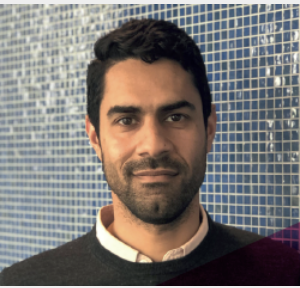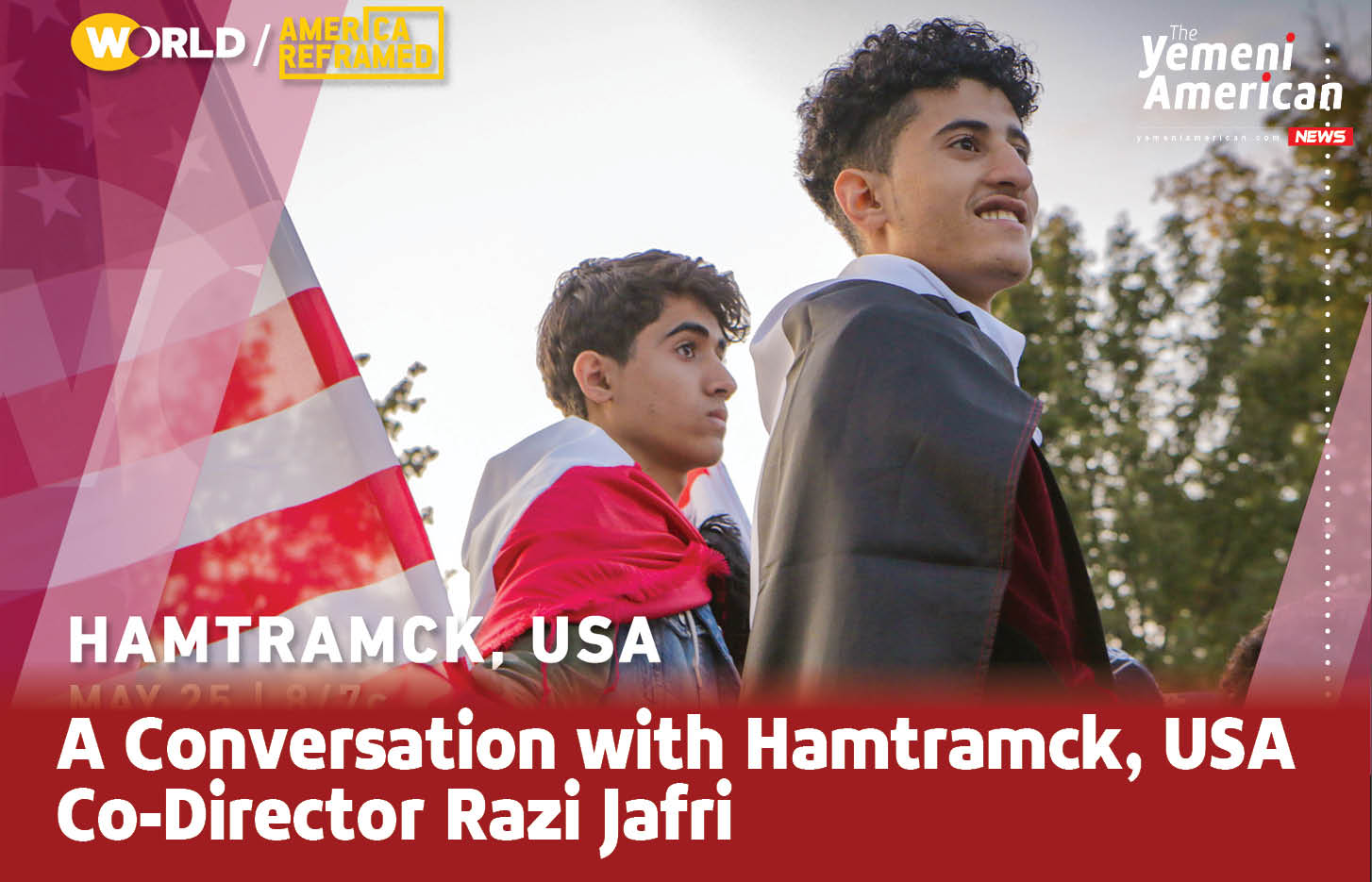By Simon Albaugh – Yemeni American News
HAMTRAMCK, Mich. – Few documentaries follow the local election process as closely as Razi Jafri and Justin Feltman’s small-town based documentary, Hamtramck, USA. At first charming and later an inspiring message for the power of local initiative, this film shot through the festival circuit and into a spot on PBS’ America Reframed series.
Directed by Razi Jafri and Justin Feltman, the film follows the 2017 election in Hamtramck. Executive Producer Doug Blush and Editor Luther Clement-Lam also played an important role in the making of the film. Colleen Burke, a Hamtramck-based musician, composed the score heard throughout the scenes.
 Razi Jafri (Photo Courtesy of the University of Michigan)
Razi Jafri (Photo Courtesy of the University of Michigan)
The Yemeni American News talked with co-director Razi Jafri, a Hamtramck Resident, about the making of Hamtramck, USA.
YAN: I want you to take me from the initial idea for film to the planning. What was involved with the ideation of it, and then the prep work?
RAZI: Yeah. So it was born out of meeting with my co director Justin Feltman. And he was based in DC, and he was coming to Detroit to work on a documentary about the perspectives of marginalized communities during the 2016 presidential election. And in the course of our conversations, we started thinking about collaborating on a film together. And that’s where the idea for the film was born. And we thought that we would need some type of anchor for the film, which would be like a storyline or a through line. And we’d wanted to try to see what was happening and try to make in the subsequent years, and we found out that there was an election happening in 2017. So this is obviously after Trump was elected. And, for us, it was a way to kind of respond to what had happened in 2016. Because of Hamtramck being a Muslim minority city and immigrant majority city, it embodied a lot of the storyline from the 2016 campaign, particularly Trump’s campaign, which was anti-Muslim, anti-women, anti-immigrant, so on and so forth. So that gave a really good subject matter for us to explore these things, through the Hamtramck experiences… And so we spent all of 2017 covering the campaigns, the election events, the primaries, the general election, and the inauguration and everything in between, all through 2017.
YAN: I guess, I wanted to know, if there was ever, you know, a scene that really stuck out to you. From the production standpoint, is there anything about making the film that really still sticks with you?
RAZI: I think the biggest thing that sticks with me are the relationships that we’ve formed with our subjects, which I even sort of feel uncomfortable calling them that. Justin, and I, you know, worked on I have worked on this film for five years now, you know, four or five years. And it’s been such a rich experience for us. We’ve formed such really wonderful relationships with people. And I think, honestly, that’s the main thing that I take away from it. There were obviously, a lot of scenes in the film, which are very beautiful, very moving, of course – Karen’s speech at the end of the film that kind of just ties everything up so nicely. We knew that when that was shot, that was going to be the end of the film. And so we had a strong idea of that is a very powerful moment, her reflecting on the election in her life and her work and her citizenry in Hamtramck. But I think it’s more for us the relationships. I mean, we consider ourselves friends with a lot of the people that we work with. I see them around. I see Karen around town, I see Abraham at different events, protests rallies. I see him out in the field working in the communities. Same thing with Fadel and Kamal. I think the other beautiful thing to see is that people are kind of fully engaged in the political process, and they aspire to continue running for office in the future.
YAN: Without getting too controversial with it, and having already been so intimately involved with an election, What are your thoughts on how you assume this year’s election would go?
RAZI: I think with every election, there’s an evolution, you know, in the candidate in the community, in the campaign. And there’s always newcomers as well. So we’re seeing now in the 2021, and Primary mayoral and city council elections, we’re seeing a broader field. And then we’re seeing the, you know, sort of a growth in the community. As well, we’re seeing a broader range of candidates, particularly from the immigrants and from the Muslim communities. We have lots of candidates that are running for mayor and city council, and I think the 2017 elections, perhaps were not the ones that really inspired folks. Maybe it was the elections that were two or four years prior to that. But you start seeing an inflection point where people that were maybe sort of curious about running for office are now fully invested in the political process. And so you have campaigns that are more robust, in 2021, that are more that are going to be more diverse, you have a range of people that are running for office from various different backgrounds, and you see a type of sophistication that’s also taking place as well, through the use of technology and different organizing techniques.
YAN: And then my last question might be a timely question, especially with your trip. But I wanted to know what people can expect in the future? How can we continue to engage with your work?
RAZI: Justin and I are actually working on another film together. And it’s an archival documentary film that explores and investigates the killing of an American Imam, Anwar al Awlaki, under the Obama administration, without a trial or due process. This is the first time in American history that an American citizen born and raised, has been hunted and killed without a trial and due process since the American Civil War. So Justin and I are definitely keeping busy. The post- production and the broadcast and distribution of the film has kept us really busy this year, and towards the second half of 2020, as well. And we were also part of a bunch of film festivals with this film. And then, you know, we’re starting work on our next film together. Then for me, personally, I’m in grad school at the University of Michigan, getting my MFA in visual art. And of course, I’m focusing on documentary film. Through that process, I’m actually in Korea at the moment – in Seoul. I plan on traveling around the country working on a documentary film about Yemeni refugees that have arrived in Korea between 2016 and 2018, on Jeju Island. And so I’m documenting what their life has been like living in Korea, a country that’s so far away from Yemen, and living in a culture that’s extremely different than their own. So exploring their life in a country and in a life of seeking asylum and constant travel and constant transit. And so that’s, that’s one of my next projects. Then lastly, the next project that I have that’s closest to completion is a film called loyalty, which examines the life of three Muslim chaplains in the US Armed Forces as they navigate religious freedom and Islamophobia. And so that film is set to be completed at the end of 2022.
Hamtramck, USA will air on PBS today at 8:00pm. The film will also be available for streaming on the channel’s website for one year after it airs tonight.












